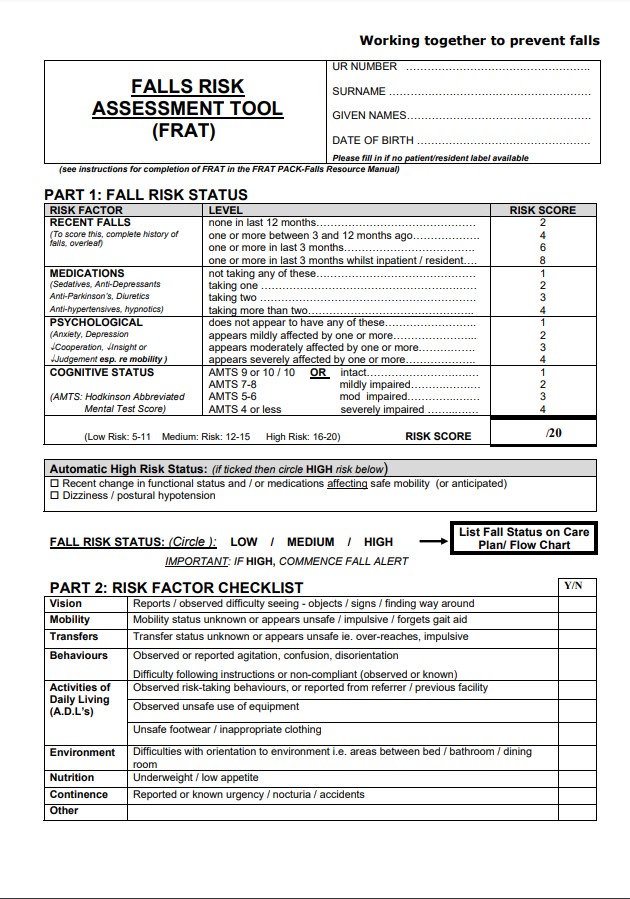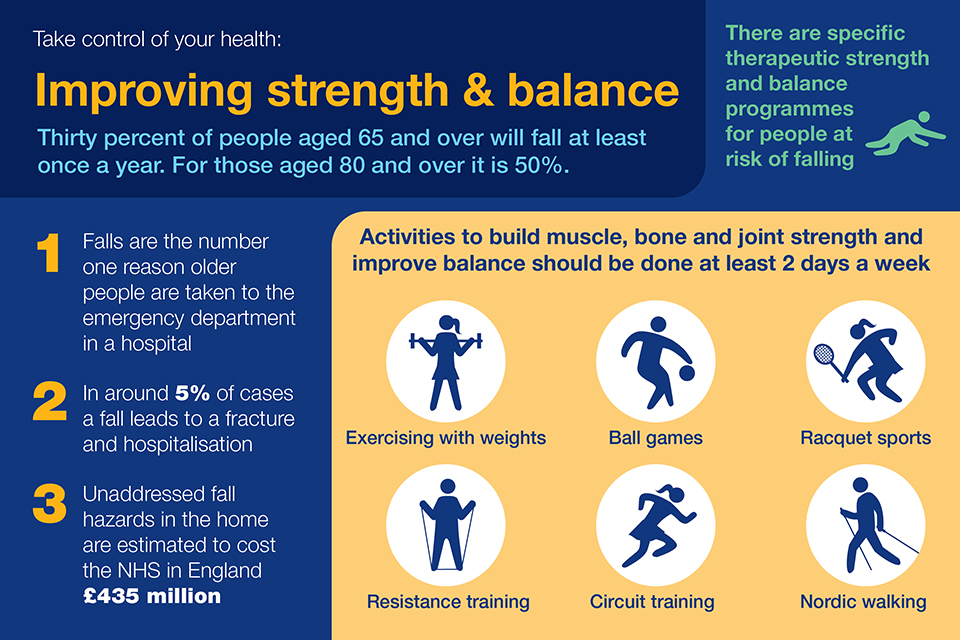Dementia Fall Risk Things To Know Before You Get This
Dementia Fall Risk Things To Know Before You Get This
Blog Article
What Does Dementia Fall Risk Mean?
Table of ContentsThe Buzz on Dementia Fall RiskFacts About Dementia Fall Risk Uncovered7 Easy Facts About Dementia Fall Risk ExplainedThe smart Trick of Dementia Fall Risk That Nobody is DiscussingThe 8-Minute Rule for Dementia Fall Risk
Ensure that there is an assigned area in your medical charting system where team can document/reference scores and document relevant notes associated to drop avoidance. The Johns Hopkins Loss Danger Assessment Device is one of several devices your team can make use of to help stop negative medical events.Individual drops in healthcare facilities are common and devastating damaging events that continue in spite of decades of effort to reduce them. Improving interaction throughout the examining registered nurse, treatment team, patient, and person's most included close friends and family members may enhance loss prevention efforts. A team at Brigham and Women's Health center in Boston, Massachusetts, looked for to create a standard fall avoidance program that focused around improved interaction and person and family members engagement.

The technology group emphasized that effective application relies on person and personnel buy-in, combination of the program into existing operations, and integrity to program procedures. The group kept in mind that they are grappling with just how to ensure connection in program execution throughout durations of crisis. During the COVID-19 pandemic, as an example, an increase in inpatient falls was related to restrictions in patient interaction in addition to constraints on visitation.
The Ultimate Guide To Dementia Fall Risk
These occurrences are commonly taken into consideration preventable. To implement the treatment, organizations require the following: Access to Autumn suggestions resources Autumn ideas training and re-training for nursing and non-nursing team, including new nurses Nursing process that permit for individual and family members involvement to carry out the falls assessment, guarantee use the prevention plan, and conduct patient-level audits.
The outcomes can be very destructive, often accelerating patient decline and creating longer health center stays. One research estimated remains increased an additional 12 in-patient days after a person fall. The Fall TIPS Program is based on appealing patients and their family/loved ones throughout 3 main processes: evaluation, individualized preventative treatments, and auditing to guarantee that clients are taken part in the three-step autumn avoidance procedure.
The patient assessment is based on the Morse Loss Range, which is a verified fall threat analysis tool for in-patient hospital setups. The scale includes the 6 most usual reasons clients in healthcare facilities drop: the individual loss history, risky conditions (consisting of polypharmacy), use of IVs and other external tools, psychological condition, stride, and mobility.
Each danger variable web links with several actionable evidence-based treatments. The registered nurse produces a plan that incorporates the treatments and shows up to the care group, client, and family on a laminated poster or published aesthetic help. Nurses create the plan while meeting the patient and the individual's family.
Dementia Fall Risk for Dummies
The poster acts as an interaction tool with other participants of the individual's treatment team. Dementia Fall Risk. The audit component of the program consists of assessing the patient's knowledge of their danger aspects and prevention strategy at the system and healthcare facility levels. Nurse champions conduct at the very least 5 private interviews a month with individuals and their households to inspect for understanding of the fall avoidance strategy

An estimated 30% of these falls outcome in injuries, which can vary in intensity. Unlike various other negative events that require a standardized medical response, autumn prevention depends very on the demands of the patient.
Dementia Fall Risk for Beginners

Based on auditing results, one website had 86% compliance and 2 websites had over 95% conformity. A cost-benefit evaluation of the Loss suggestions program in 8 healthcare facilities estimated that the program expense $0.88 per person to carry out and resulted in savings of $8,500 per 1000 patient-days in straight expenses connected to the prevention of 567 tips over 3 years and 8 months.
According to the advancement team, companies Source curious about applying the program ought to perform a preparedness evaluation and falls avoidance gaps analysis. 8 Additionally, organizations should make sure the required infrastructure and operations for execution and create an execution plan. If one exists, the organization's Loss Prevention Task Force need to be involved in planning.
The Of Dementia Fall Risk
To start, companies need to make sure conclusion of training components by registered nurses and nursing aides - Dementia Fall Risk. Healthcare facility staff should assess, based on the needs of a health center, whether to use an electronic health record hard copy or paper version of the autumn prevention strategy. Carrying out groups should hire and educate registered nurse champions and establish procedures for auditing and reporting on fall data
Personnel need to be associated with the procedure of upgrading the workflow to involve clients and household in the assessment and prevention strategy procedure. Solution must be in web link area so that systems can comprehend why a fall occurred and remediate the cause. A lot more specifically, registered nurses ought to have networks to give ongoing responses to both team and device leadership pop over to this web-site so they can readjust and enhance autumn avoidance process and connect systemic issues.
Report this page